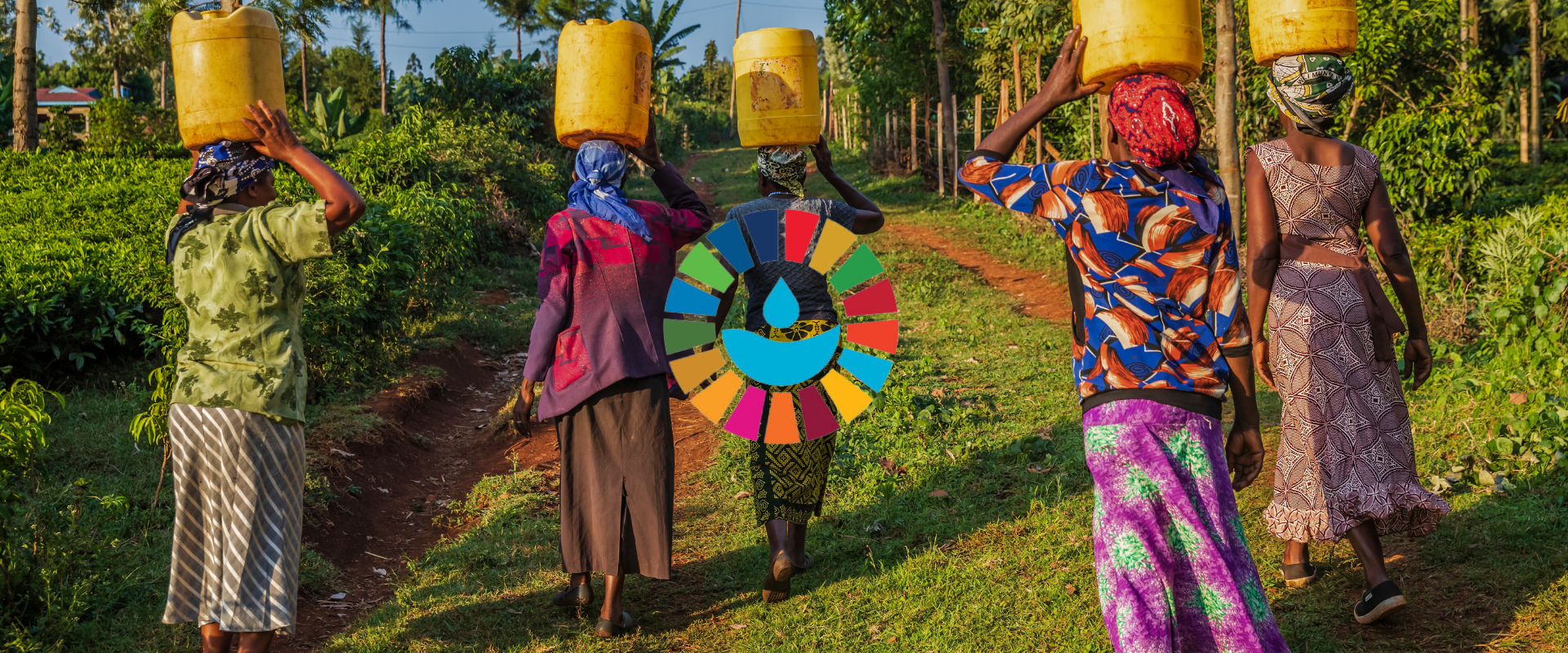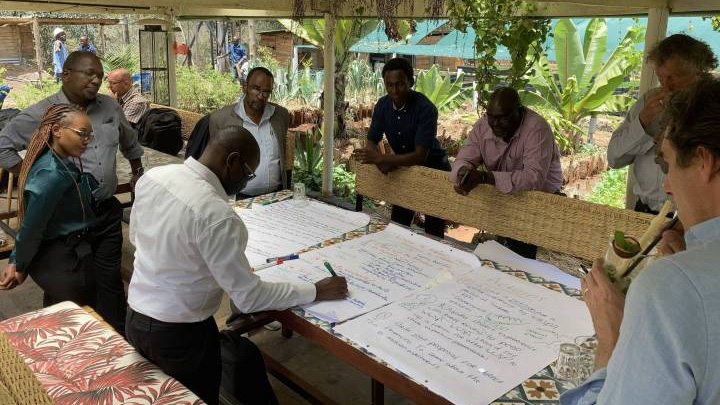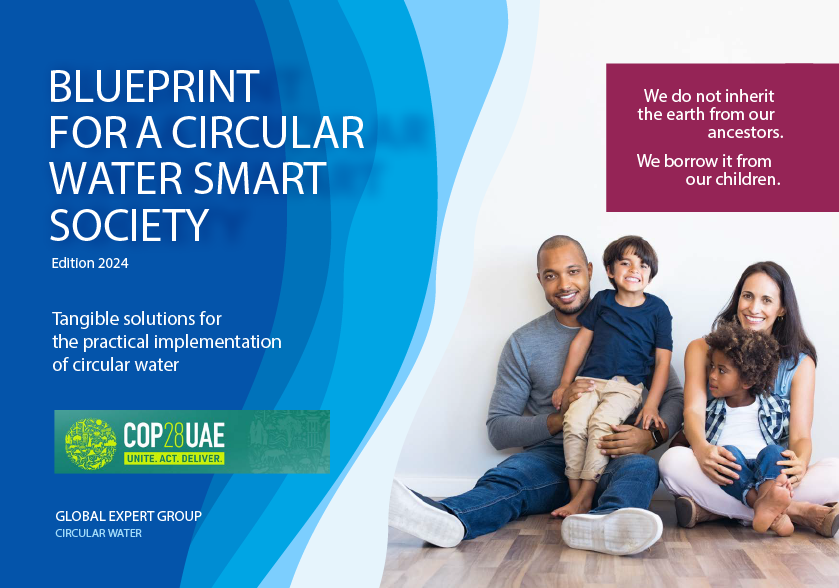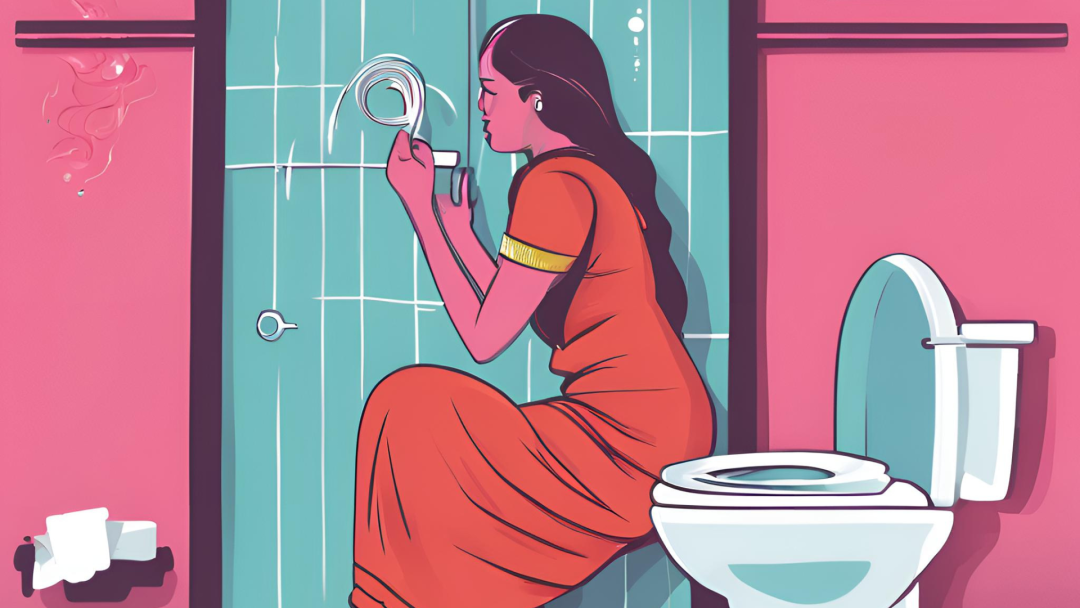
Implementing Water Action Agenda commitments with Dutch leadership
As climate change intensifies, the need for sustainable water solutions has never been more critical for the water sector. Dutch organisations are leading the charge by contributing to diverse and sustainable commitments under the Water Action Agenda (WAA), a pivotal outcome of the UN 2023 Water Conference.
Initiatives towards climate-adaptive utilities, circular water in urban areas, and water, hygiene and sanitation (WASH) education in underserved regions are three notable examples of Dutch-led commitments. Each one of these commitments reflects the WAA contribution of a specific group of Dutch stakeholders; the Government, private sector, and NGOs.


Securing climate adaptive utilities in Africa and Asia
The ‘Towards climate adaptive utilities in Africa and Asia’ commitment, led by the WaterWorX Programme, addresses the growing risks of climate change to water and sanitation services, and aims to strengthen these essential services against challenges such as droughts and floods. This initiative is crucial in protecting vulnerable communities from climate impacts that threaten their access to safe water.
WaterWorX is a collaborative programme of the Dutch Government and all 10 Dutch water utilities designed to improve water and sanitation access to their customers. In partnership with 40 water operators in Africa and Asia, the Programme equips local partners with climate-adaptive strategies under this WAA commitment, which is a top up of the WaterWorX Programme. During its first phase from 2017 to 2021, WaterWorX supported its partners with operational improvements and contributed to providing first-time access to piped water and sanitation services for 1.6 million people. WaterWorX is currently running its second phase, aiming to improve the lives of an additional 3.5 million people by the end of 2026.
Since pledging commitment of the climate adaptation fund in 2023, the Programme has supported its partners with the development of Water Safety Plans and Climate Adaptation Plans. In addition, it has fully allocated its fund, investing in resilient green infrastructure and water resources projects that are currently being implemented. The collaborative efforts of the utilities are key to achieving the commitment's objectives across 14 countries in Africa and Asia: Bangladesh, Ethiopia, Ghana, Indonesia, Kenya, Laos, Malawi, Mali, Palestinian Territories, Philippines, Tanzania, Uganda, Zambia, and Zimbabwe.
Anke Verheij, Programme Coordinator of WaterWorX at VEI says: “The WaterWorX climate adaptation fund highlights the urgent need for partner utilities to adapt to climate change and acts as a catalyst for expanding capacity to maintain quality WASH services. In Morogoro, Tanzania, the fund enabled a collaboration with the water resource board and farmers, boosting biodiversity, the local economy, and future water reliability. Following the May 2024 floods in Nairobi, the fund supports 'building back better' with projects in Nairobi, Laos, and Zimbabwe, which are focused on rehabilitating and reinforcing water and sewage infrastructure in order to withstand climate impacts.”


Advancing circular water management in urban areas
The ‘Blueprint for a Circular Water Smart Society’ commitment seeks to reduce tap water use, minimise wastewater emissions, and promote sustainable urban development. This initiative addresses the urgent need for water-smart cities to combat water scarcity, reduce environmental impact, and improve urban resilience.
Initiated by the Dutch Expert Group Circular Water of Water Alliance, the commitment was pledged by the Global Expert Group Circular Water partnership. The partnership launched the Blueprint for a Circular Water Smart Society on World Water Day 2023, providing tangible and actionable solutions for integrating circular water practices in urban areas. This Blueprint aims to reduce water consumption by up to 45 percent by deploying safe, circular water sources that maintain quality of life even during water scarcity. Thus, it supports cities in transitioning to circular water management without compromising residents’ standards of living.
“Hydraloop is proud to be one of the driving forces behind the commitment to a Circular Water Smart Society,” says Sabine Stuiver, CMO and co-founder of Hydraloop. “With the endorsement of the Dutch Government, the Blueprint has been included in the agenda for COP28, held from 30 November to 13 December at Expo City, Dubai. This year, we’ve also taken significant steps to amplify the Blueprint’s impact by presenting it at the IWA World Water Congress & Exhibition in Toronto. Subsequently, we are preparing to showcase it at the Smart City Expo in Barcelona, reinforcing our mission to drive water resilience and sustainable urban development globally.”


Advocating menstrual health & dignity rights
With a focus on rural and underserved regions, the ‘Menstrual Health and Dignity’ commitment advocates for the development of strategies that keep menstruation health and dignity at the center of water and sanitation policies. Under the commitment, Women Engage for a Common Future (WECF) and its partners advocate for safe sanitation facilities, affordable menstrual products, and comprehensive education. Additionally, they promote reusable menstrual products and support local production to boost accessibility and economic growth.
This commitment exemplifies the role of Dutch NGOs in addressing WASH challenges. WECF is implementing its commitment in various regions and through several instruments. Its Water and Sanitation Safety Planning programme has been implemented in the Balkans, through which WASH and microplastics education has been introduced into school curricula. Additionally, its Platform of Vocational Excellence Water is developing a skilled workforce to address water issues in Europe and South Africa. In India, WECF is also working to ensure safe sanitation facilities and affordable menstrual products for all.
“Looking ahead, our commitment to menstrual health and dignity remains central to WECF's mission,” says Bistra Mihaylova, WECF’s Senior Water and Sanitation expert. “In 2025 and 2026, we plan to strengthen our focus on menstrual rights as a key thematic area through our MENSY project in Europe, and within WECF’s ecofeminist movement-building fund, globally.”
Holistic approach
These commitments underscore the Netherlands’ holistic approach to sustainable water practices, and showcase how the public, private, and NGO sectors can collectively address global water challenges. By applying expertise across sectors, Dutch initiatives like these ones are driving impactful, resilient solutions that support communities worldwide in adapting to and mitigating the effects of climate change.



